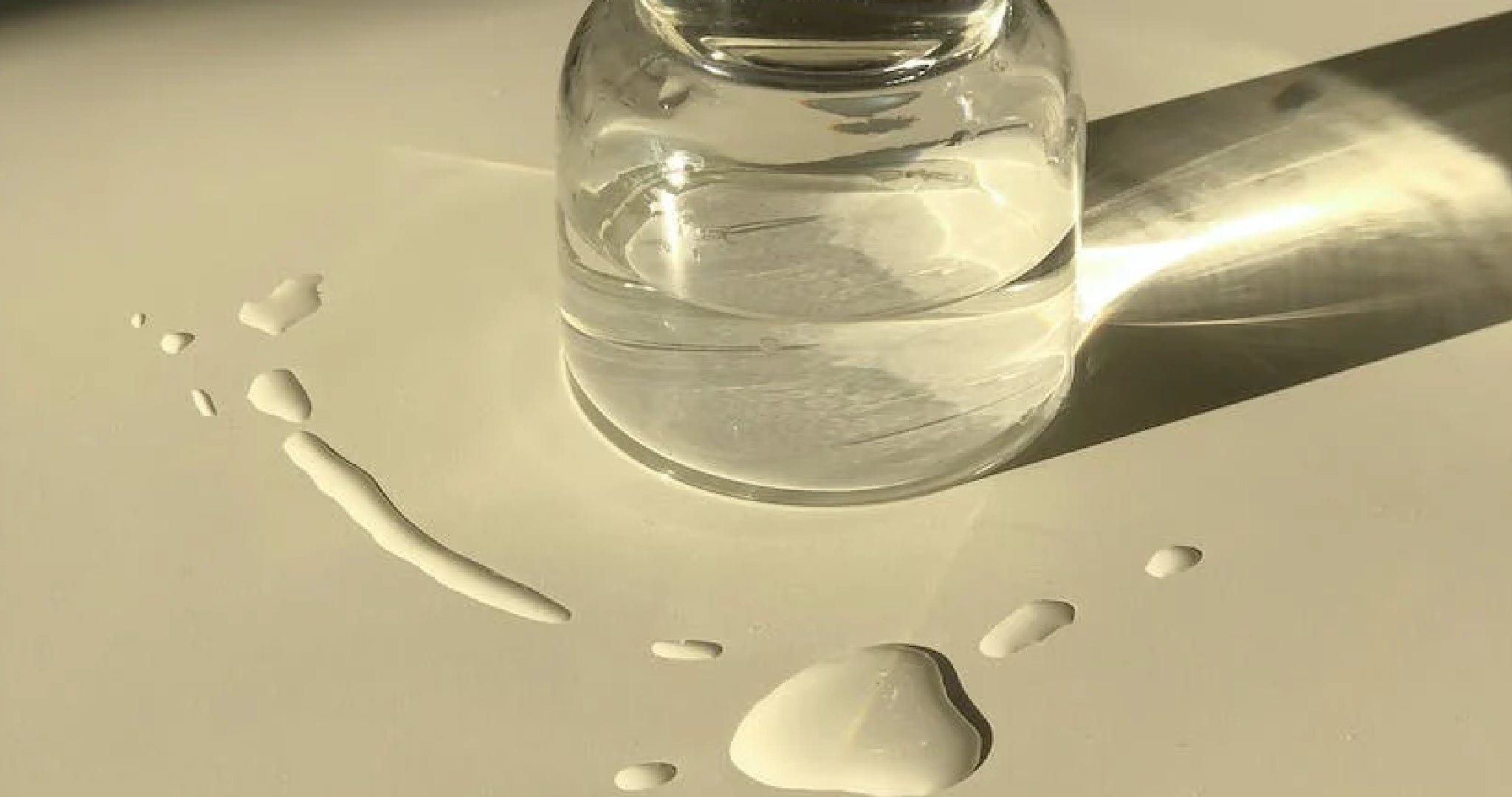The top 4 non-vegan ingredients in perfumes and deodorants
If you were asked whether perfumes and deodorants are vegan-friendly, your intuitive answer may be that most of them are. The answer is a little more tricky though. While most ingredients in a perfume or deodorant may be vegan, a few from animal origins are still widely used by certain brands. Let’s dive into the 4 most common non-vegan ingredients you may encounter in mainstream perfumes and deodorants, what they are used for and what alternatives are available for a truly vegan experience.
1. Musk

Credit Photo: Yoss Traore
Earthy, woody, strong, enticing, sensual, animalistic… Musk can be described by a myriad of adjectives and is therefore extremely popular in perfumery. But where does musk come from?
We’ve written an article on ambergris, a type of musk secreted by whales. Another common source of musk is deer musk, coming from a gland underneath a deer’s abdomen. The content of the gland is usually obtained upon killing the deer. The gland is then dried up and mixed with alcohol to create musk.
Another type of popular musk from animal origin used in perfumery is civet musk. Civet production mainly takes place in Africa from the African civet, which secretes civet fluid. They are bred and kept in cages for that purpose.
The production of such products has been deemed problematic for a while now, with most perfumers turning to synthetic musk as an alternative. Natural and vegan perfumers even took another step forward by recreating a musk smell with natural and vegan ingredients. Recipes for “natural musk” are usually blends of cedarwood, myrrh, frankincense, patchouli, vanilla and other oils.
We’ve written an article on ambergris, a type of musk secreted by whales. Another common source of musk is deer musk, coming from a gland underneath a deer’s abdomen. The content of the gland is usually obtained upon killing the deer. The gland is then dried up and mixed with alcohol to create musk.
Another type of popular musk from animal origin used in perfumery is civet musk. Civet production mainly takes place in Africa from the African civet, which secretes civet fluid. They are bred and kept in cages for that purpose.
The production of such products has been deemed problematic for a while now, with most perfumers turning to synthetic musk as an alternative. Natural and vegan perfumers even took another step forward by recreating a musk smell with natural and vegan ingredients. Recipes for “natural musk” are usually blends of cedarwood, myrrh, frankincense, patchouli, vanilla and other oils.
2. Honey

Credit Photo: Roman Odintsov
Honey is often mistaken for a vegan-friendly ingredient but whether it really is vegan is quite controversial.
The philosophy behind veganism is about eliminating (or at least minimising) the use of products made from animal exploitation. Meat, eggs and dairy are no-brainers as being excluded from a vegan diet but honey, being produced by insects is often not as clear-cut for everyone. Most vegans will still exclude it from their diet though.
It’s sweet and bold, rich and warm, comforting and floral. It may surprise you that honey is not only used as a source of food but in perfumery as well. Honey marries well with floral or woody scents, bringing a round and warm side to them. Therefore, when honey is being used in perfumery, it is natural but not vegan.
A vegan (while still natural) alternative to honey for perfumers would be linden blossom. Linden (also known as Tilia) is a tree whose blossoms can be used to create an essential oil. Such essential oil smells sweet and warm and honey-like with subtle hints of lime.
The philosophy behind veganism is about eliminating (or at least minimising) the use of products made from animal exploitation. Meat, eggs and dairy are no-brainers as being excluded from a vegan diet but honey, being produced by insects is often not as clear-cut for everyone. Most vegans will still exclude it from their diet though.
It’s sweet and bold, rich and warm, comforting and floral. It may surprise you that honey is not only used as a source of food but in perfumery as well. Honey marries well with floral or woody scents, bringing a round and warm side to them. Therefore, when honey is being used in perfumery, it is natural but not vegan.
A vegan (while still natural) alternative to honey for perfumers would be linden blossom. Linden (also known as Tilia) is a tree whose blossoms can be used to create an essential oil. Such essential oil smells sweet and warm and honey-like with subtle hints of lime.
3. Beeswax

Credit Photo: Pixabay
Beeswax may be used more than you would imagine in cosmetics as it is quite a versatile ingredient. It is used in makeup, lotions, deodorants and perfumes. Beeswax is beneficial for our skin as it hydrates and smoothes it. It is also a natural emulsifier, helping mix and hold ingredients together as well as giving them a nice thickness and waxy consistency.
Beeswax is particularly popular in natural deodorants as it helps achieve a harder consistency and smooth texture while also hydrating the sensitive underarm skin.
However, beeswax is secreted by the abdominal wax glands of honeybees. Beeswax is the base of honeycomb used for the storage of honey and pollen. Unfortunately, its origins make it, similarly to honey, non-vegan.
But do not despair, there is a natural AND vegan alternative. Candelilla is a small shrub present in northern Mexico and the southwestern United States. From its leaves is derived Candelilla wax that can be used in a similar fashion as beeswax in deodorants (amongst other uses). From an allergen perspective, Candelilla wax is also better suited to people sensitive to honey or pollen.
Beeswax is particularly popular in natural deodorants as it helps achieve a harder consistency and smooth texture while also hydrating the sensitive underarm skin.
However, beeswax is secreted by the abdominal wax glands of honeybees. Beeswax is the base of honeycomb used for the storage of honey and pollen. Unfortunately, its origins make it, similarly to honey, non-vegan.
But do not despair, there is a natural AND vegan alternative. Candelilla is a small shrub present in northern Mexico and the southwestern United States. From its leaves is derived Candelilla wax that can be used in a similar fashion as beeswax in deodorants (amongst other uses). From an allergen perspective, Candelilla wax is also better suited to people sensitive to honey or pollen.
4. Glycerin

Credit Photo: Jill Burrow
Glycerin is one of the most used ingredients in cosmetics, mainly for its moisturising properties.
When it comes to perfumes, the use of glycerin is different. Glycerin acts as a fixative, meaning that it will hold a fragrance together longer, slowing down its evaporation. Glycerin is odourless too so it doesn’t alter the scent.
So is glycerin vegan? Yes and no… it depends…
Glycerin can have two main origins.
The first one is from animal fats. It is usually beef or mutton fat (also known as tallow) mixed with water and heated up until it achieves a thick consistency. This type of glycerin is of course non-vegan.
The second type is vegetable glycerin. As its name indicates, such glycerin is derived from plants, most commonly from coconut, palm or soybean oil. The oils are cooked under pressure to create the glycerin. This type of glycerine is vegan.
Always check with the manufacturer and look for vegan certification to ensure products you are using are 100% vegan.
When it comes to perfumes, the use of glycerin is different. Glycerin acts as a fixative, meaning that it will hold a fragrance together longer, slowing down its evaporation. Glycerin is odourless too so it doesn’t alter the scent.
So is glycerin vegan? Yes and no… it depends…
Glycerin can have two main origins.
The first one is from animal fats. It is usually beef or mutton fat (also known as tallow) mixed with water and heated up until it achieves a thick consistency. This type of glycerin is of course non-vegan.
The second type is vegetable glycerin. As its name indicates, such glycerin is derived from plants, most commonly from coconut, palm or soybean oil. The oils are cooked under pressure to create the glycerin. This type of glycerine is vegan.
Always check with the manufacturer and look for vegan certification to ensure products you are using are 100% vegan.

